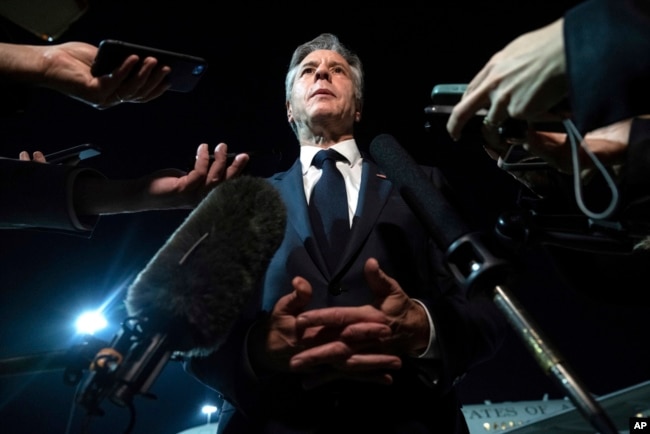On the second day of the U.N. COP28 Climate Conference in Dubai, stark disagreements emerged regarding the future utilization of fossil fuels. Following COP28 President Sultan al-Jaber’s stance, urging a phasedown rather than elimination of fossil fuel use, U.N. Secretary-General Antonio Guterres presented a contrasting perspective.
Guterres, addressing the delegates, emphasized the urgency of transitioning to renewable energy, stating, “We cannot save a burning planet with a fire hose of fossil fuel.” He advocated for an accelerated and equitable shift towards renewable energy sources, aligning with the goals set in the 2015 Paris Climate Agreement. Guterres asserted that limiting global temperature rise to 1.5 degrees Celsius necessitates a complete cessation of burning all fossil fuels, not merely reduction or abatement.
The divergence in opinions on fossil fuel use was substantial enough to prompt the resignation from a prominent member of the COP28 advisory board on Friday.
According to Reuters news service, former Marshall Islands President Hilda Heine has submitted her resignation to COP28’s President al-Jabar, citing deep disappointment over reports suggesting that the United Arab Emirates (UAE) intended to exploit the conference for discussions on potential fossil fuel and commercial agreements. Heine expressed concern that such actions could significantly undermine the credibility of the multilateral negotiation process and cast a shadow over the COP presidency and the overall proceedings.
The resignation comes in response to earlier revelations by the BBC, in collaboration with the Center for Climate Reporting, which reported leaked briefing documents outlining the UAE’s purported plans to engage in discussions regarding fossil fuel deals with representatives from 15 nations. COP28 President al-Jaber vehemently denied these reports.
In a related development on Friday, King Charles III of Britain addressed the conference, characterizing the world as “dreadfully off track” in achieving its climate goals. He expressed fervent hope that the conference would mark a critical turning point towards genuine transformative action.
Adding a global perspective, Jordan’s King Abdullah II, in his Friday remarks, drew attention to the interconnectedness of climate change and the crisis in Gaza. He argued against discussing climate change “in isolation from the humanitarian tragedies unfolding around us,” emphasizing that the region, on the front lines of climate change, has witnessed thousands of casualties, injuries, and displacements, magnifying the overall devastation. The intersectionality of climate change and humanitarian crises became a central theme in his poignant address to the conference.
U.S. Secretary of State Antony Blinken, in his extensive remarks, drew a nuanced connection between climate change and the looming global food crisis. His address highlighted alarming statistics, projecting a 50 percent surge in global food demand by 2050, coinciding with predictions of a potential 30 percent reduction in crop yields due to the escalating climate crisis over the same period.
The opening day of the conference on Thursday witnessed consensus among participants, leading to the establishment of a groundbreaking $420 million fund. This fund is specifically designed to aid economically disadvantaged and vulnerable nations in coping with the escalating costs of climate change-induced disasters such as droughts, floods, and rising sea levels.
U.S. climate envoy John Kerry expressed satisfaction with the agreement, labeling it as a “great way to start” the conference. The day-one deal not only addresses immediate financial needs but also lays the foundation for potential future agreements as COP28 progresses.
The acronym “COP” refers to the “Conference of the Parties” to the original U.N. Framework Convention on Climate Change, with the current participation of 198 parties. This significant international gathering is scheduled to continue through December 12, providing ample time for further discussions, negotiations, and potential agreements on crucial climate-related issues.
Some information for this report was provided by The Associated Press, Reuters, Agence France-Presse and VOA News
About National Carbon Monitoring Centre (NCMC)
The National Carbon Monitoring Centre is a vehicle for reporting on carbon stocks and their changes as well as coordinating the national MRV processes for the Government of Tanzania. The goal of the Centre is to enable Tanzania to actively participate and benefit from possible future international carbon trading mechanisms to reduce greenhouse gas emissions.
The core services of the Centre are:
- To manage, develop, and sustain operations of the national GHG inventory and REDD+ MRV systems and facilitate validation of results for the UNFCCC and International community in collaboration with VPO;
- To maximize the usefulness of the data generated and develop different programmes and projects with technical GHGs and REDD+ MRV components and define steps in MRV training, research, consultancies and dissemination
- To coordinate national GHG inventory and national forest inventories
- To harness available national capacity and support from regional and international expertise to operationalize the GHGs and REDD+ Inventory System; and
- To advise policies related to GHG emissions and mitigation actions.
For more information visit NCMC




